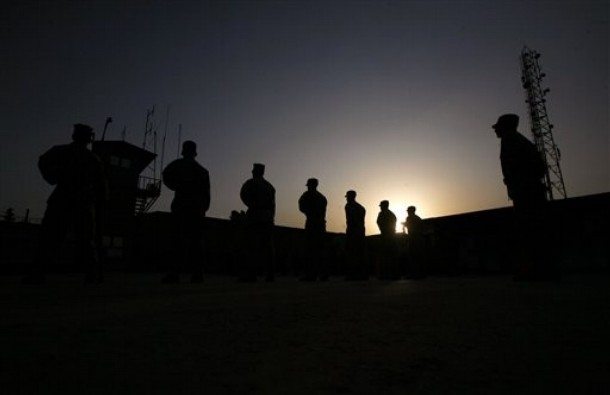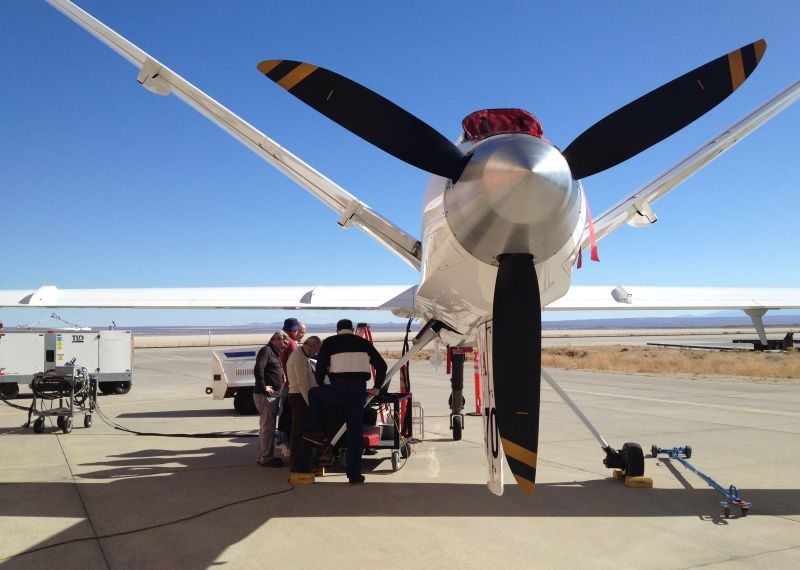Two British and one American soldier were killed by Afghan security personnel Monday in two separate shootings, officials said, bringing the number of such deaths to 16 this year.
An Afghan soldier said to be an officer shot dead the Britons in the southern province of Helmand, while the NATO-led International Security Assistance Force said an “alleged member” of the police killed a trooper in eastern Afghanistan.
A US military official in Washington confirmed the dead soldier was American.
More than one in six of the 91 foreign soldiers to have died in the country in 2012 has been killed in so-called “green-on-blue” attacks by Afghan security personnel, significantly raising tensions between NATO forces and their local colleagues.
“It appears that a member of the Afghan national army opened fire at the entrance gate to the British headquarters in Lashkar Gah city, killing the two British service personnel,” said Britain’s Defence Secretary Philip Hammond.
The attacker was shot dead by coalition forces and officials said another British soldier was severely wounded.
Lashkar Gah is the main town in Helmand, a Taliban stronghold, but was among the first places where security responsibility was handed from ISAF to Afghan forces as part of a gradual transition process.
Provincial police chief Abdul Nabi Elham said the gunman was a lieutenant named Gul Nazar from Jalalabad.
“As soon as the NATO soldiers opened the gate for him and his team in their centre, this soldier opened fire at them and killed them,” he said.
“We don’t know the motive behind this attack and have not found a link to the Taliban. We are still investigating.”
A spokesman for the militants contacted by AFP described the gunman as being “in contact” with them, although he did not claim the attack as being mounted by the Taliban.
“Today an army officer who was in contact with us killed three NATO soldiers in Helmand,” said Qari Yousif Ahmadi by telephone from an undisclosed location.
The Taliban regularly exaggerate their claims.
Exact details of the incident remained unclear, with accounts differing on whether an argument took place before the shooting started, and whether another Afghan soldier was killed.
The shooting comes less than three weeks after six British soldiers were killed when a huge explosion ripped through their armoured vehicle near Lashkar Gah.
Taliban insurgents claimed responsibility for that attack, which pushed the number of British dead in Afghanistan over the 400 mark.
ISAF said in a statement that in the second incident its service member was “shot by an alleged member of the Afghan local police as the security force approached an ALP checkpoint”.
It did not state the victim’s nationality, in line with policy.
The shooting happened in Paktika province, where the governor’s spokesman said two policemen were involved, both of whom were wounded when NATO forces returned fire and arrested.
Monday’s deaths brought the number of ISAF service members killed by Afghan security personnel this year to 16.
The previous victims of green-on-blue attacks were six Americans, four French army trainers, an Albanian and two ISAF personnel whose nationality has not been disclosed.
The US-led NATO force is training Afghanistan’s own units to take over national security by the end of 2014, allowing foreign combat troops to withdraw after a costly and lengthy war against the Taliban insurgency.
But a recent report commissioned by the US military found deep distrust and suspicion between Afghan and American troops, describing green-on-blue shootings as a “systemic” problem and calling into question NATO’s plans.
Such killings, often driven by resentment, “are provoking a crisis of confidence and trust among Westerners” training Afghan national security forces, the 2011 document said.
It found Afghan soldiers saw their US comrades as rude, disrespectful and reckless with gunfire when civilians were nearby, while for their part American troops described Afghan troops as traitorous, lazy, drug-addled and corrupt.
The frequency of green-on-blue incidents this year reached a peak after copies of the Koran were burned at an incinerator pit at the US-run Bagram airbase, leading US President Barack Obama to apologise for what he described as an error.
Around 40 people were killed in days of violent demonstrations as protesters targeted Western bases.
At one point NATO withdrew all its advisers from Afghan government ministries after two US officers were killed inside the interior ministry, apparently by an Afghan colleague. Some, but not all, have since returned.
On March 11, a massacre of 17 Afghan civilians, including nine children and four women, blamed on a lone American soldier brought relations between Kabul and Washington to a further low.
Britain is the second biggest contributor of troops to Afghanistan after the United States with 9,500 soldiers, but it is set to pull out all combat forces by the end of 2014 in line with other NATO nations.











